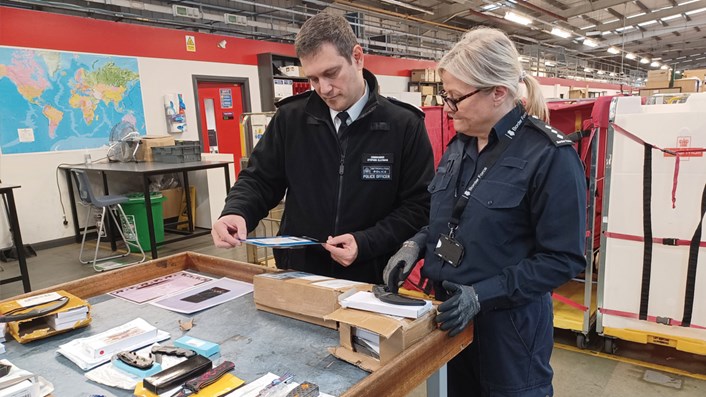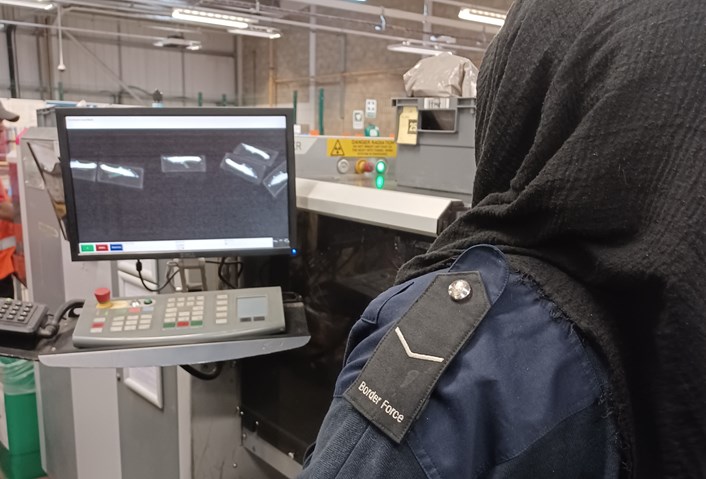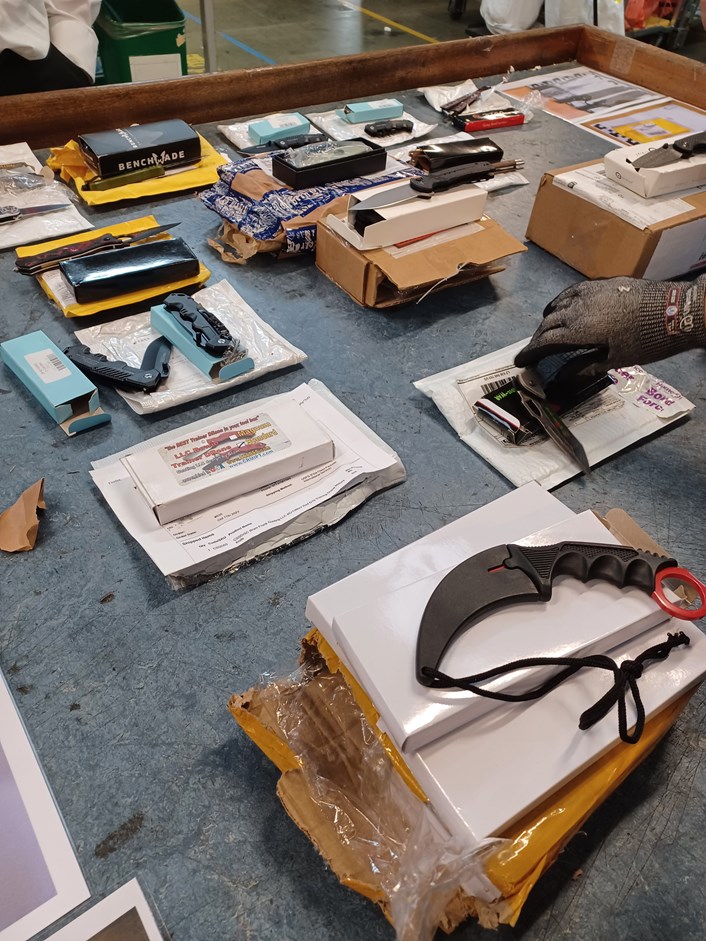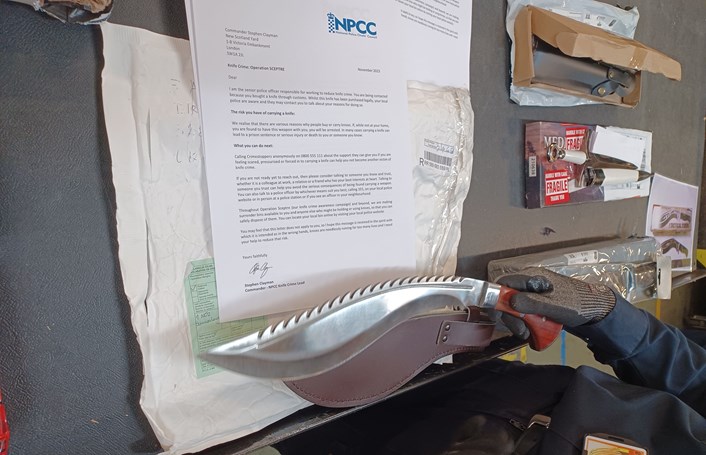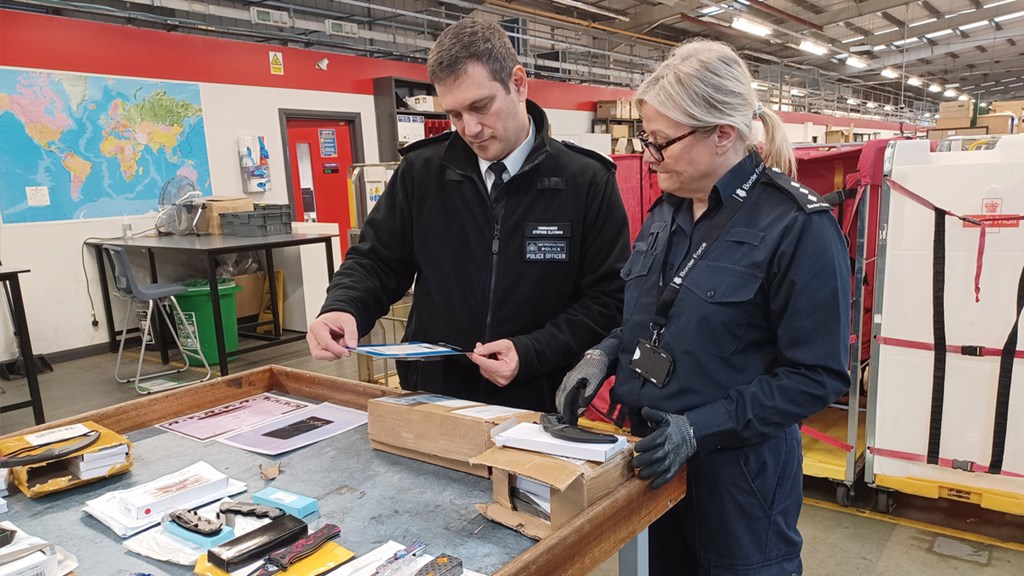
19 Nov 2023
Limiting supply is crucial to tackling knife crime
Commander Stephen Clayman discusses Operation Uchee
Now in my second Op Sceptre period as NPCC Lead for Knife Crime, I’ve had plenty of time to consider the many challenges we face in our work to reduce the numbers of knives on our streets. And of course, this isn’t just about reducing the numbers of knives, as we’re ultimately working to stop the tragic deaths and severe injuries those knives can cause – a reality which has been all too stark these past months.
Op Sceptre this week is focussed on the online sale of knives and looking at opportunities where we can limit the supply. As part of this, we have a strong partnership with Border Force under Operation Uchee, which is a process that manages the interception of packages of illegal weapons imported into the UK.
- Parcels are scanned for blades
Border Force will scan parcels arriving at Royal Mail’s distribution centre in West London and any which appear to be weapons are opened and examined. Should the weapon be illegal, it will be seized and the recipient reported to their respective police force.
If the weapon is not illegal, it will be repackaged and sent on. While carrying a knife in public without a legitimate purpose is illegal, many knives can be owned and kept at home legally - this is where we have some concerns.
Many of the knives intercepted by Op Uchee and viewed on our visit to Border Force this week are shockingly not illegal to own, despite them appearing to have no legitimate purpose. Many of the knives we saw were highly unlikely to be used to chop vegetables in a kitchen or to be part of a camping expedition but nevertheless do not meet the criteria to be seized.
- A selection of the knives examined under Operation Uchee
I know that buying items online can often feel anonymous and I make no apologies for sending a very clear message that this is absolutely not the case.
Any parcels of knives intercepted through Op Uchee that are found to be legal, will be repackaged and sent on - only now, a letter from myself will also be included which demonstrates we know who the individuals purchasing these dangerous knives are. It advises them of the law around carrying a knife in public and signposts them to seek support and/or surrender the weapon; this is important if they’ve bought a knife because they think it will keep them safe.
I’m not naïve to think that this letter will be a game changer, but even if it makes one person stop and think about their decision to carry a knife, that could be one more life saved.
We will soon see new legislation that really supports our work, including a ban on certain types of machetes and knives that seem to have no practical use and appear designed to look menacing and suitable for combat, as well as a new police power to seize lawfully held bladed articles in private premises. While this will significantly enhance our ‘toolkit’ for dealing with knife crime, we are also looking to speak with online retailers around what it means to be a responsible retailer and how they can work in partnership with policing to manage the risks.
There are so many aspects and angles to tackling knife crime and reducing supply is only one element, but a highly important one. I would like to thank our colleagues at Border Force and Royal Mail for their dedication and support to Op Uchee, which has been running for a number of years.
Op Sceptre maybe one of two weeks a year where we amplify how much we talk about our work tackling knife crime but rest assured extensive action is always taking place all over the country by dedicated officers and staff who are doing everything they can to protect their communities from these dangerous weapons.
Contact information
Communications office
By phone: 0800 538 5058
By email: press.office@npcc.police.uk




